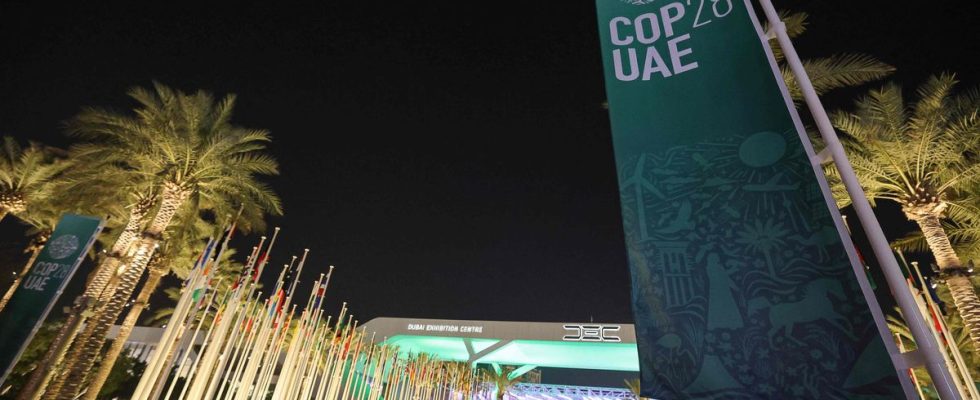The Emirati presidency of COP28 unveiled this Wednesday a new compromise project to unblock the Dubai climate negotiations. The document, whose publication was awaited all night by sleep-deprived negotiators, proposes for the first time in the history of United Nations climate conferences to mention all fossil fuels, largely responsible for climate change, in a decision to be adopted by all countries.
The text, every word of which was negotiated by the Emiratis, calls for “transitioning away from fossil fuels in energy systems, in a fair, orderly and equitable manner, accelerating action in this crucial decade, in order to achieve carbon neutrality in 2050 in accordance with scientific recommendations. The call to accelerate action this decade was a demand from the European Union and many other countries.
By choosing the term “transitioning away”, the text no longer speaks of “phase-out” (“exit”) of oil, gas and coal, a term that has become the standard banner for months behind which were lined up more than a hundred countries and thousands of NGOs.
To make history, this compromise text, the result of painful negotiations notably between the European Union, small island countries, the United States, China and Saudi Arabia, will indeed have to be approved by the consensus of nearly 200 countries. Only one country can object to the adoption of a decision at the COP, according to UN Climate rules.
A small victory all the same for the NGOs
“This is not the historic promise” of “phase-out”, but “transition out”, it still sends an important signal. And if it is adopted, it would still be the first time that we have such words, which cover not only coal, but also oil and gas,” reacted Caroline Brouillette, director of the Réseau NGO network. climate action canada. However, she regretted the inclusion of “dangerous distractions like carbon capture and storage, nuclear power. »
The NGO WWF described the new draft agreement as an “improvement” regarding fossil fuels, compared to the previous version, while noting the absence of a call for a “complete exit” from fossils. But “if this text is adopted, it would represent a significant moment,” said Stephen Cornelius of WWF.
“This text is a step forward on the path to phasing out fossil fuels, but is not the historic decision that we were hoping for,” reacted Andreas Sieber of 350.org, who would have liked a more direct call to the release of fossils.
Great first for the COPs
Sultan Al Jaber had been striving for more than twenty-four hours to save a COP that he had announced as “a turning point”, capable of preserving the most ambitious objective of the Paris agreement, adopted eight years ago. years: limit the rise in global temperature to 1.5°C. The first draft Emirati text, on Monday, sparked an outcry because it listed too many options to choose from and did not call for an “exit” from fossil fuels, the combustion of which since the 19th century is largely responsible for the rise current global temperatures of 1.2°C, compared to the pre-industrial era.
To date, only the “reduction” of coal had been recorded at COP26 in Glasgow. Oil and gas had never been designated. In the Emirates’ draft agreement there is recognition of the role played by “transitional energies”, an allusion to gas, in ensuring the “energy security” of developing countries, where nearly 800 million people lack access to electricity. electricity.

